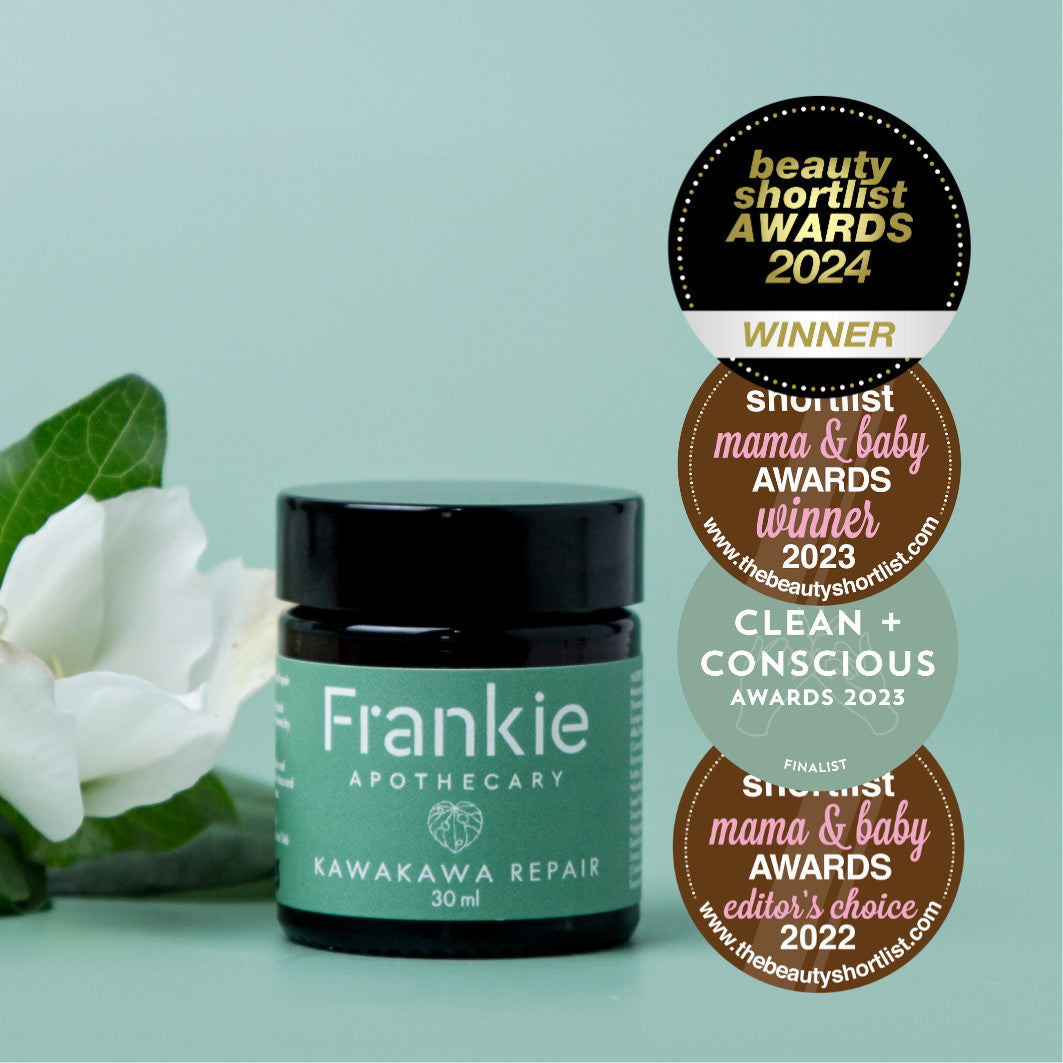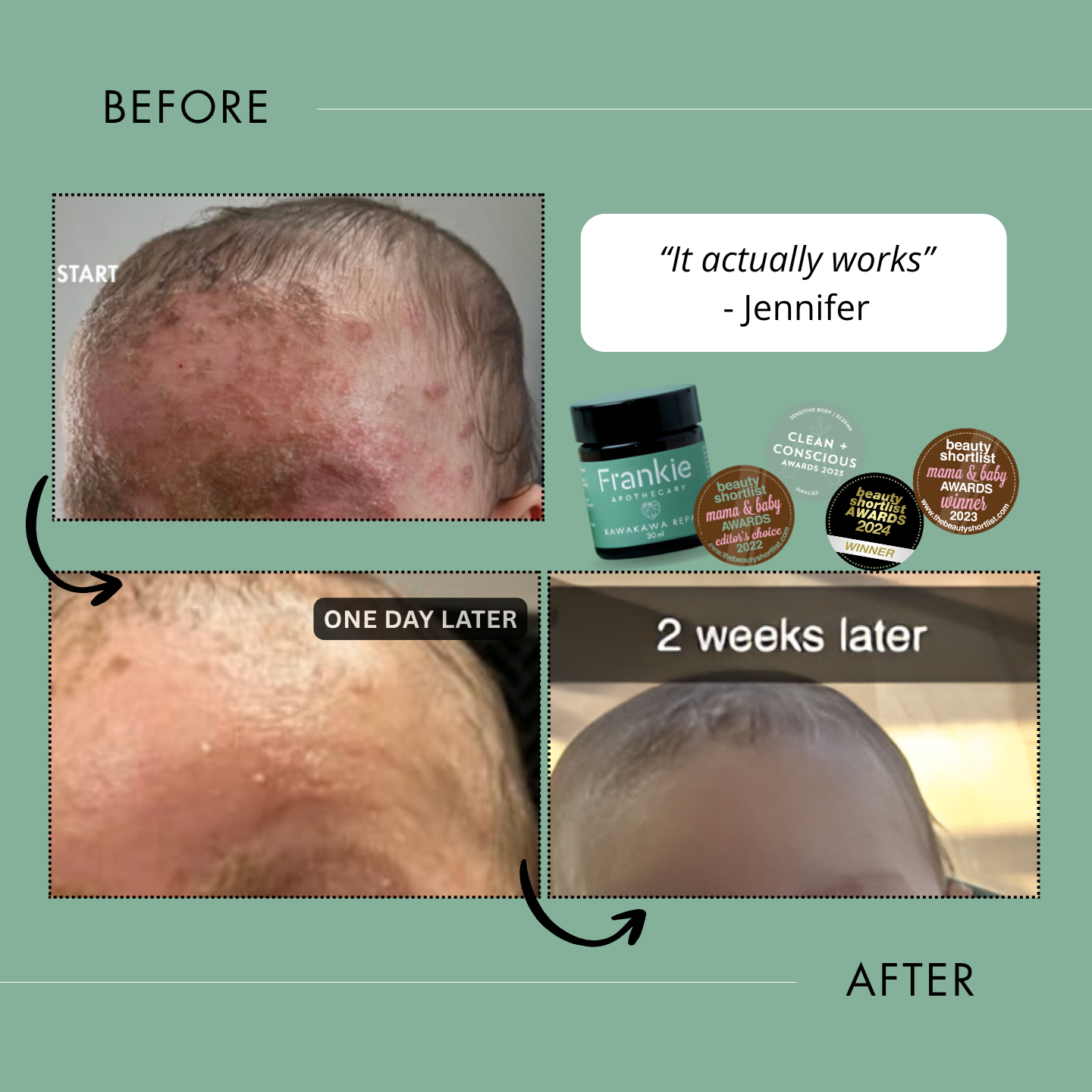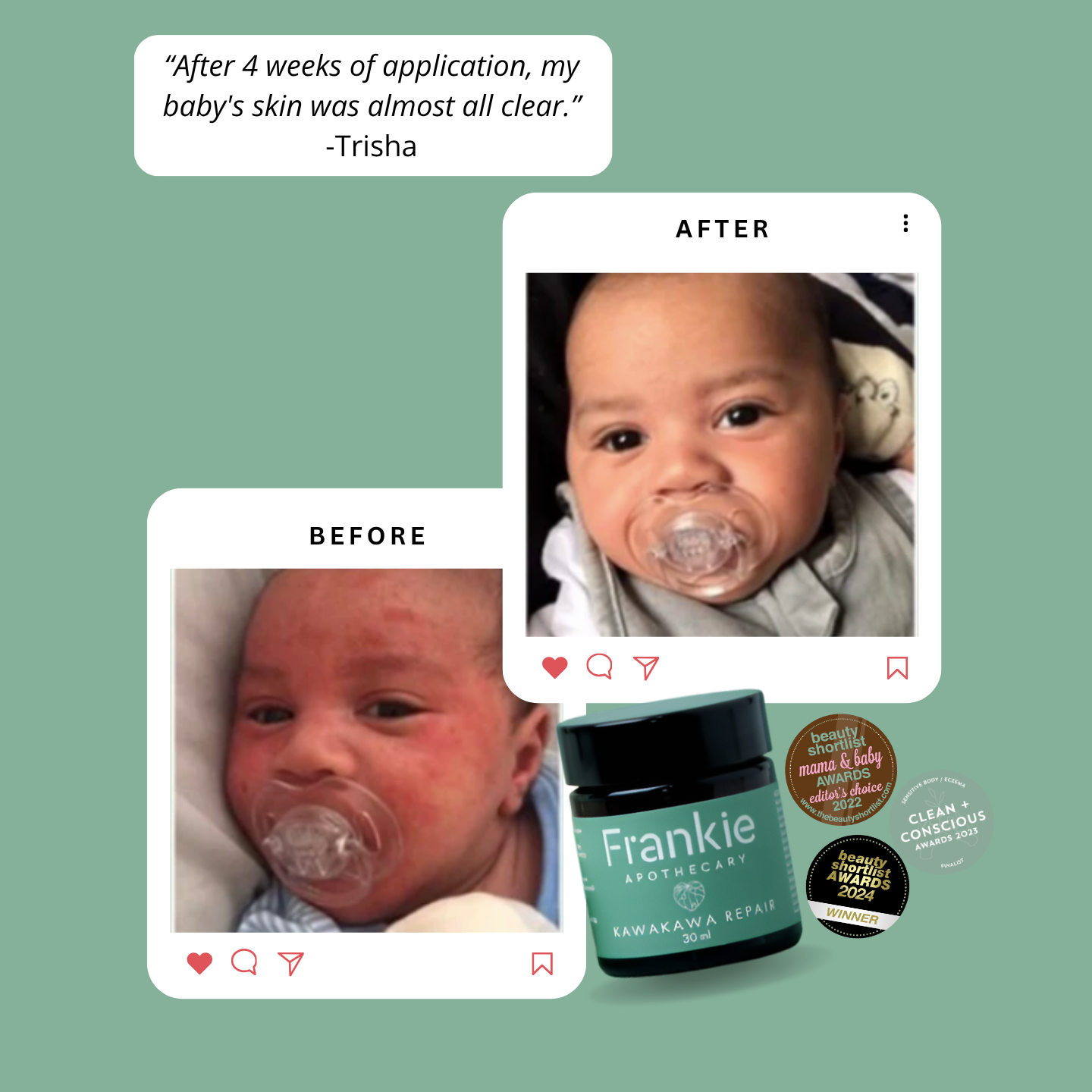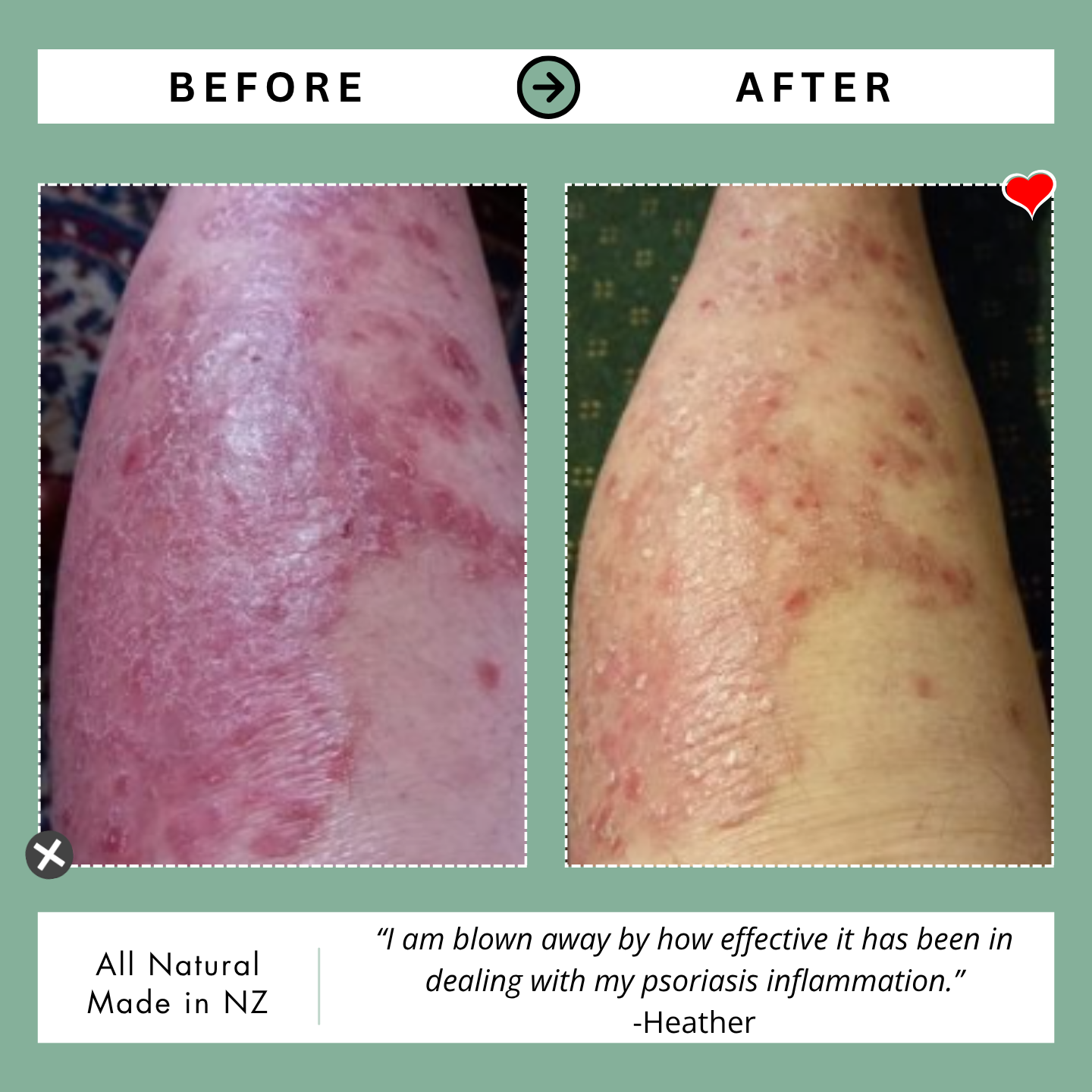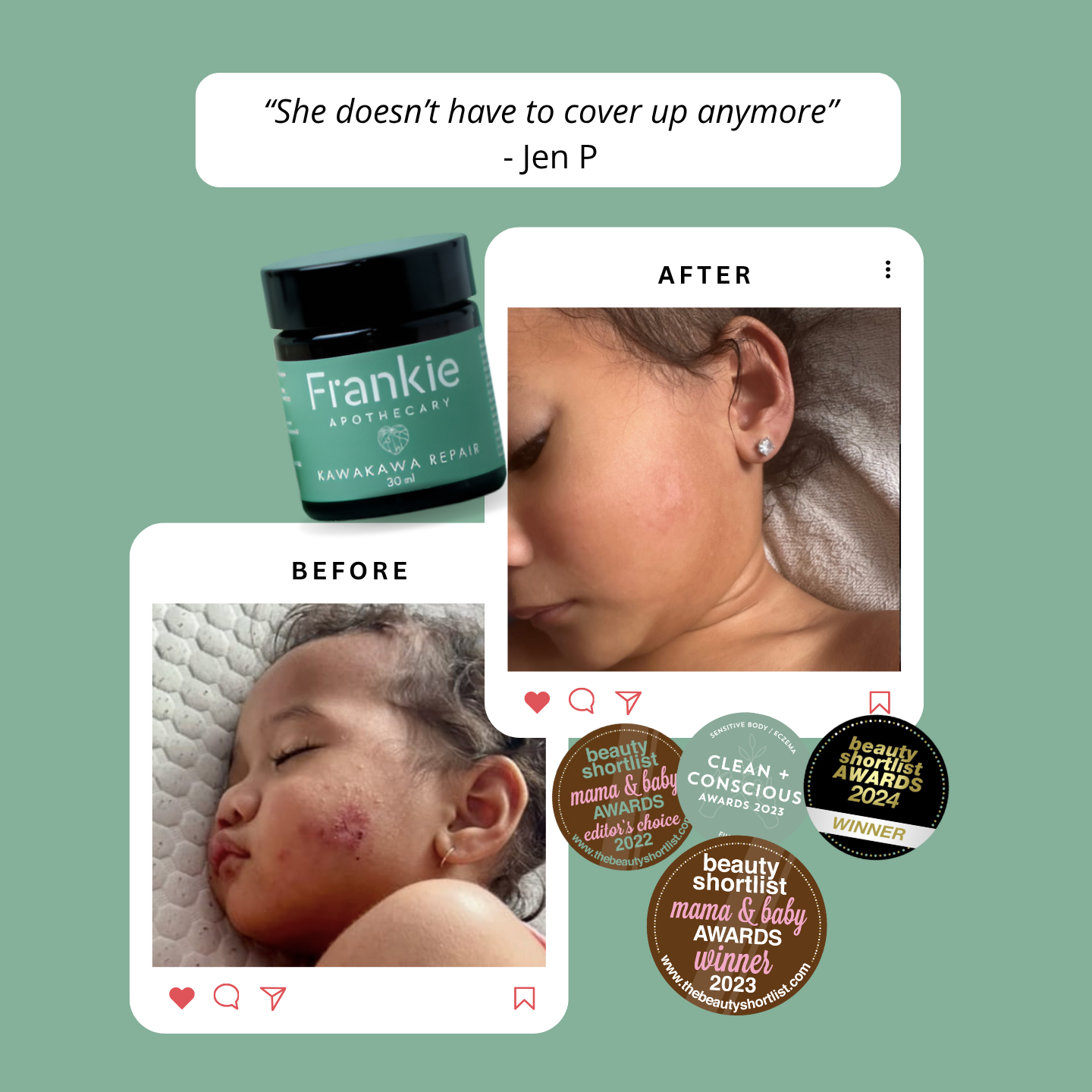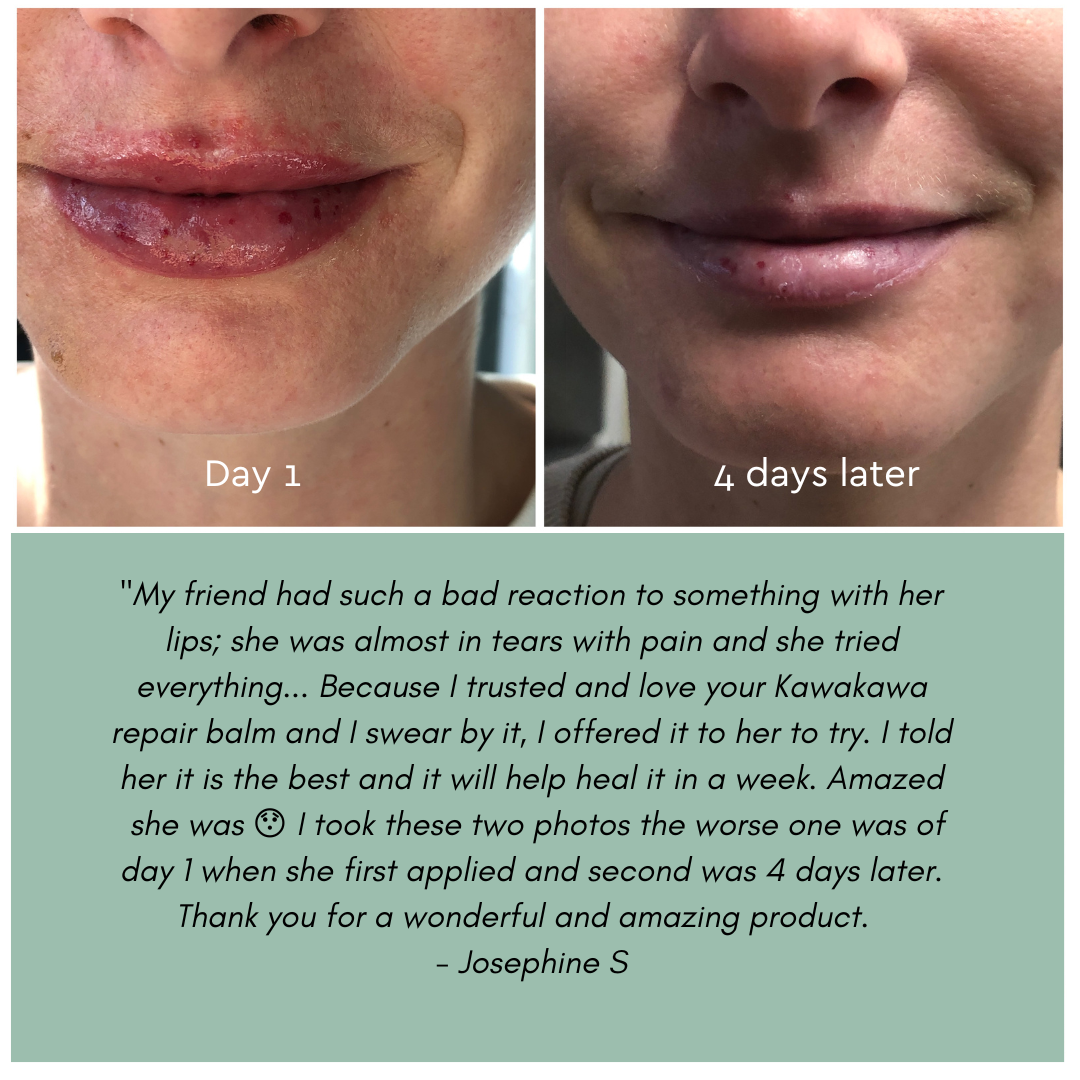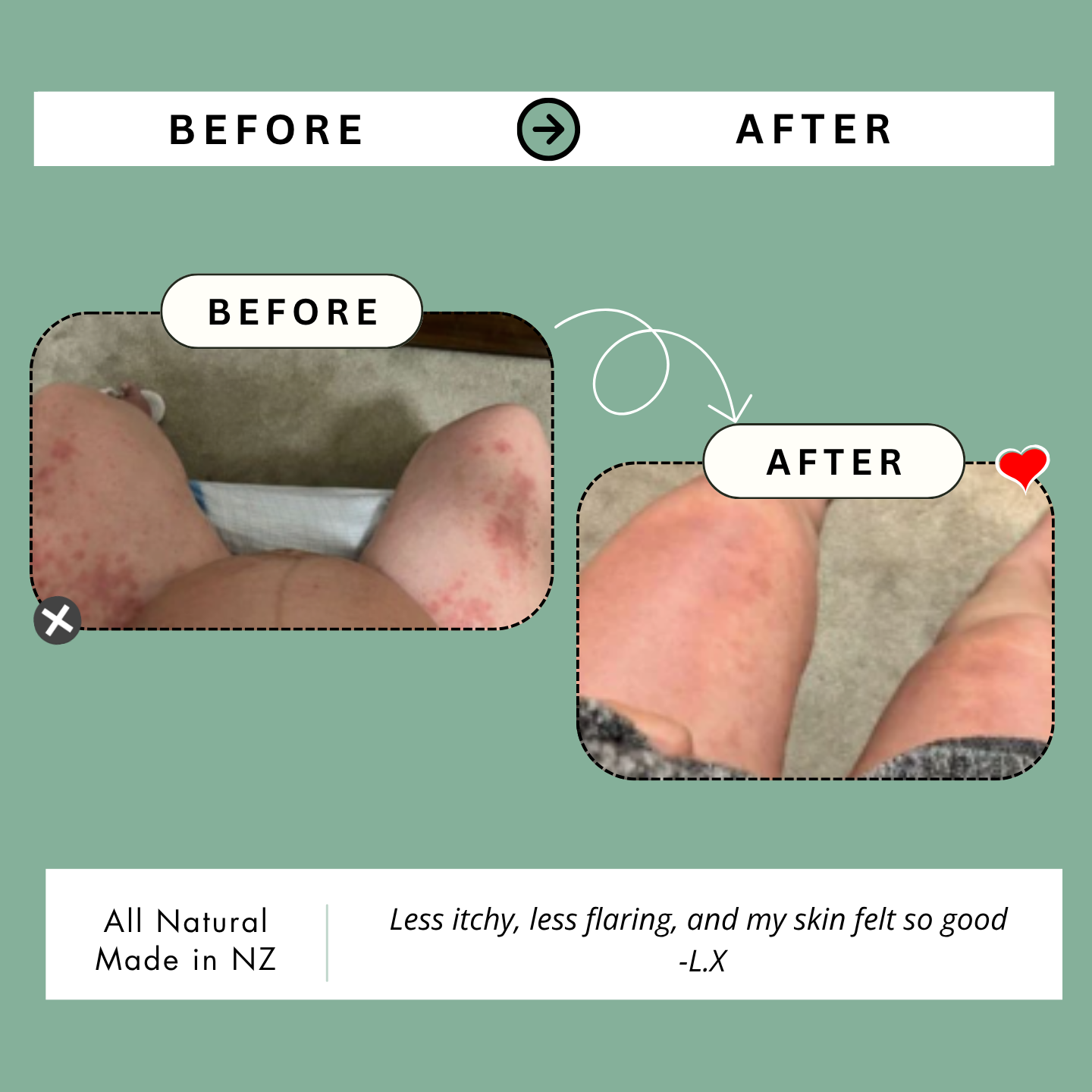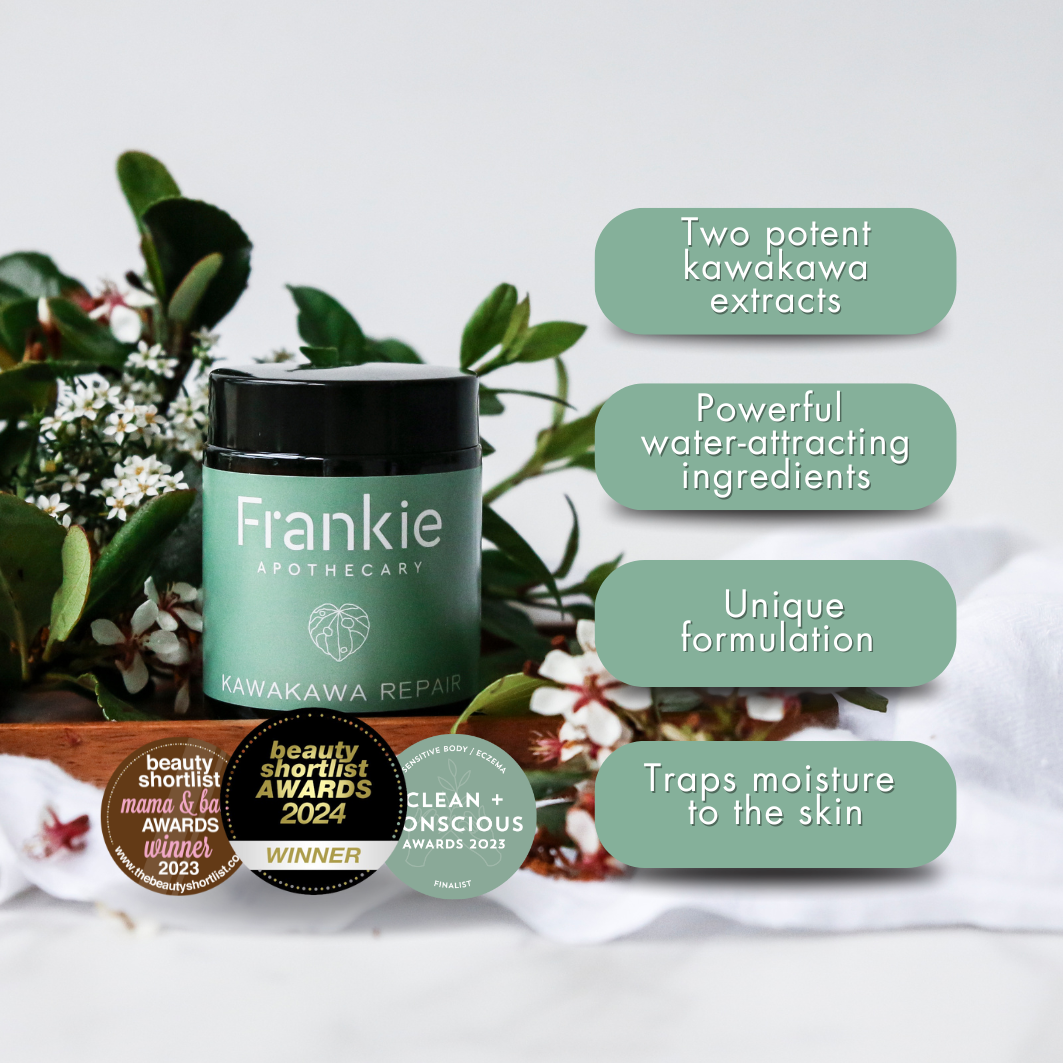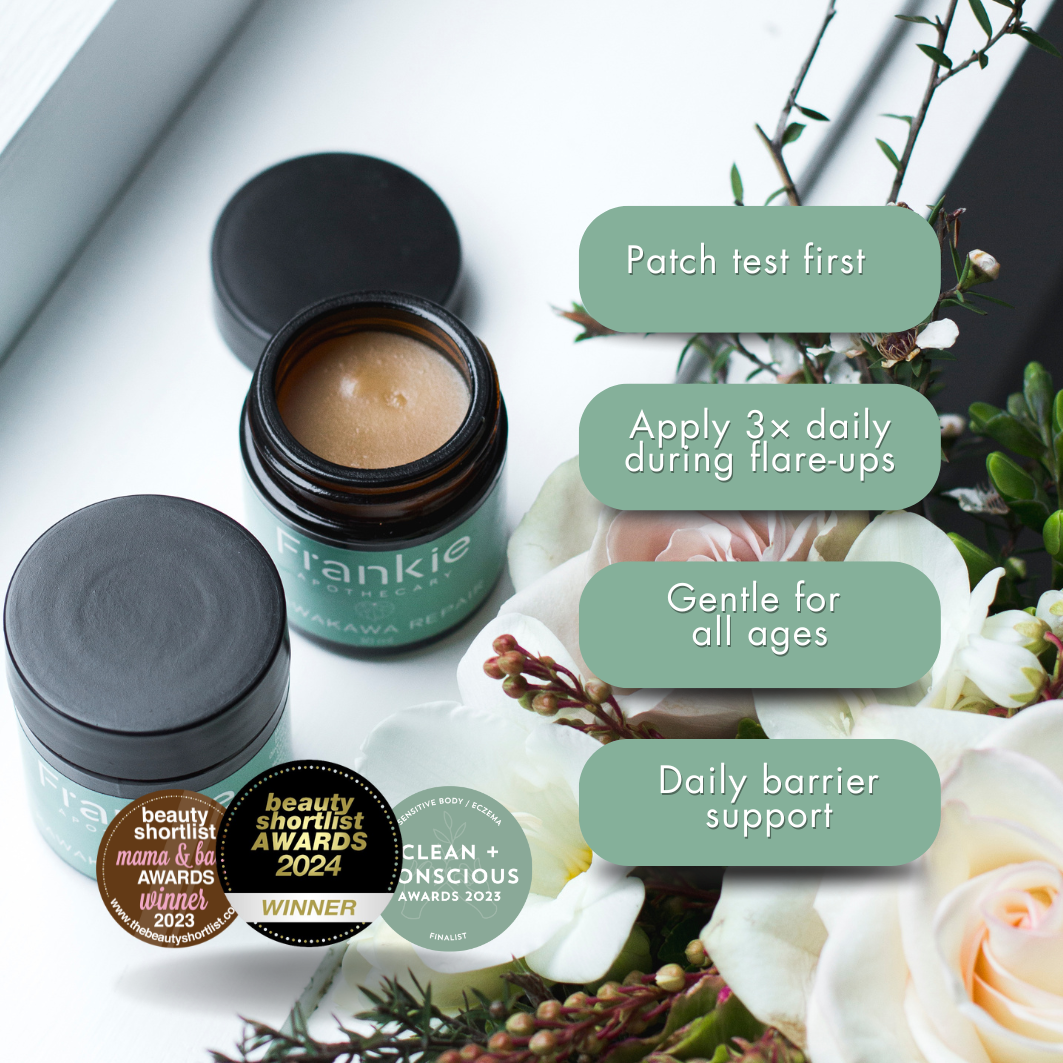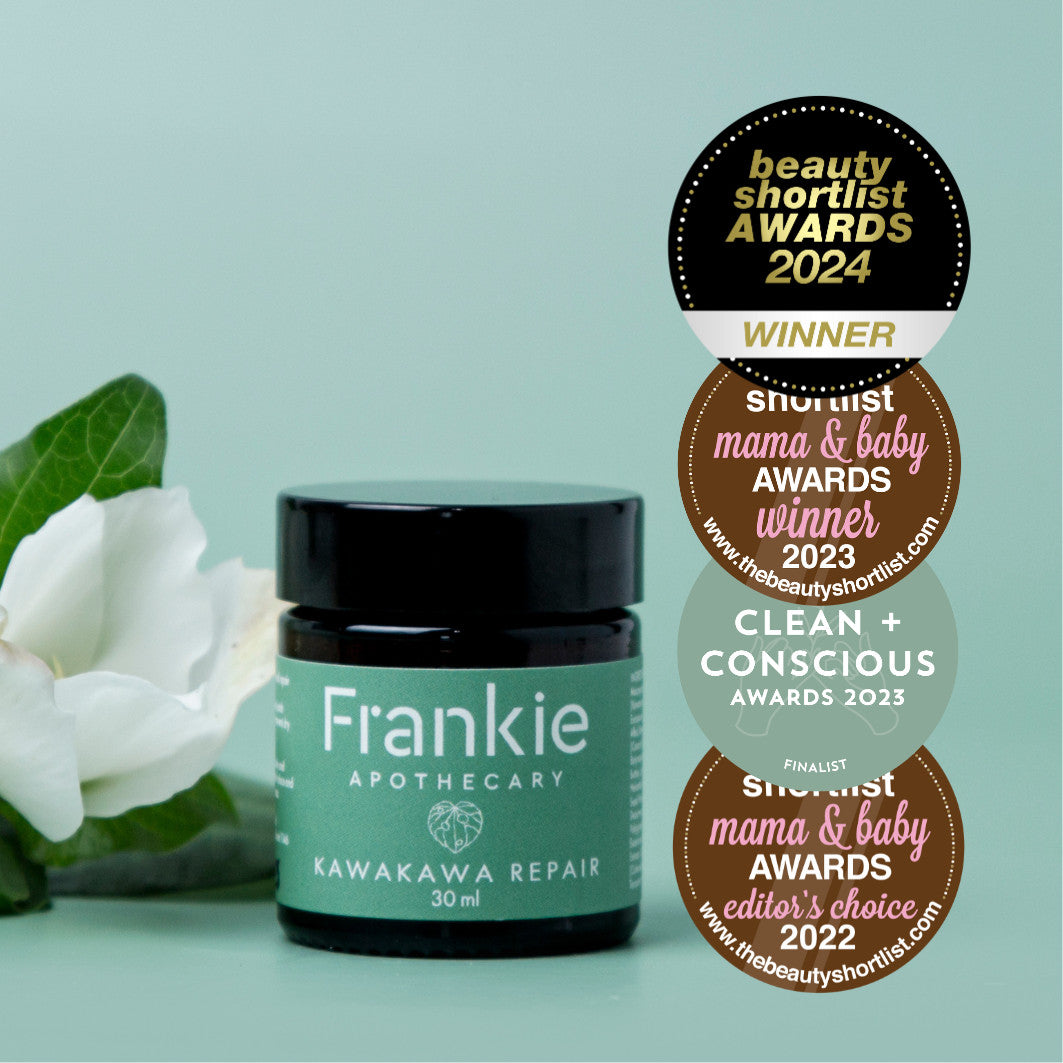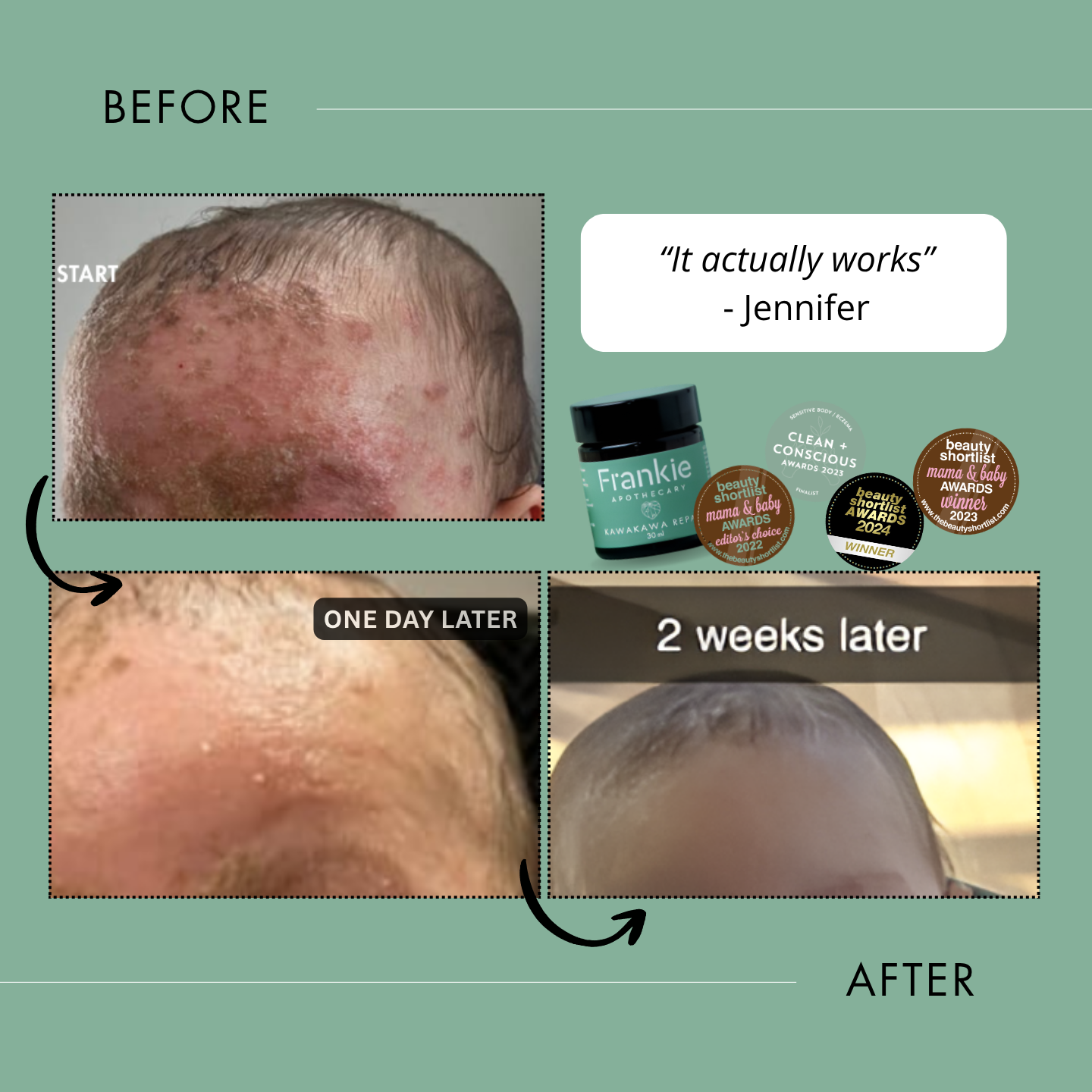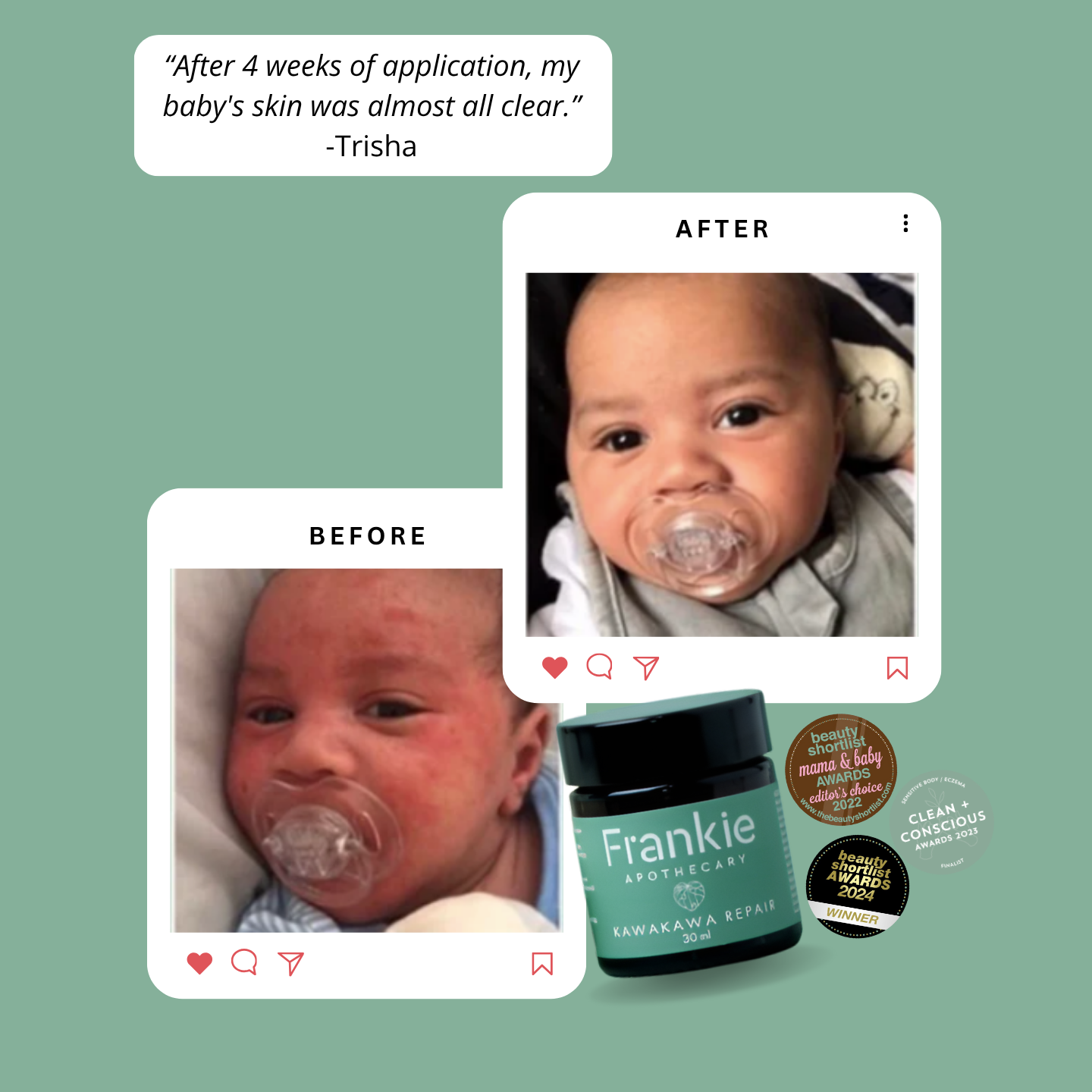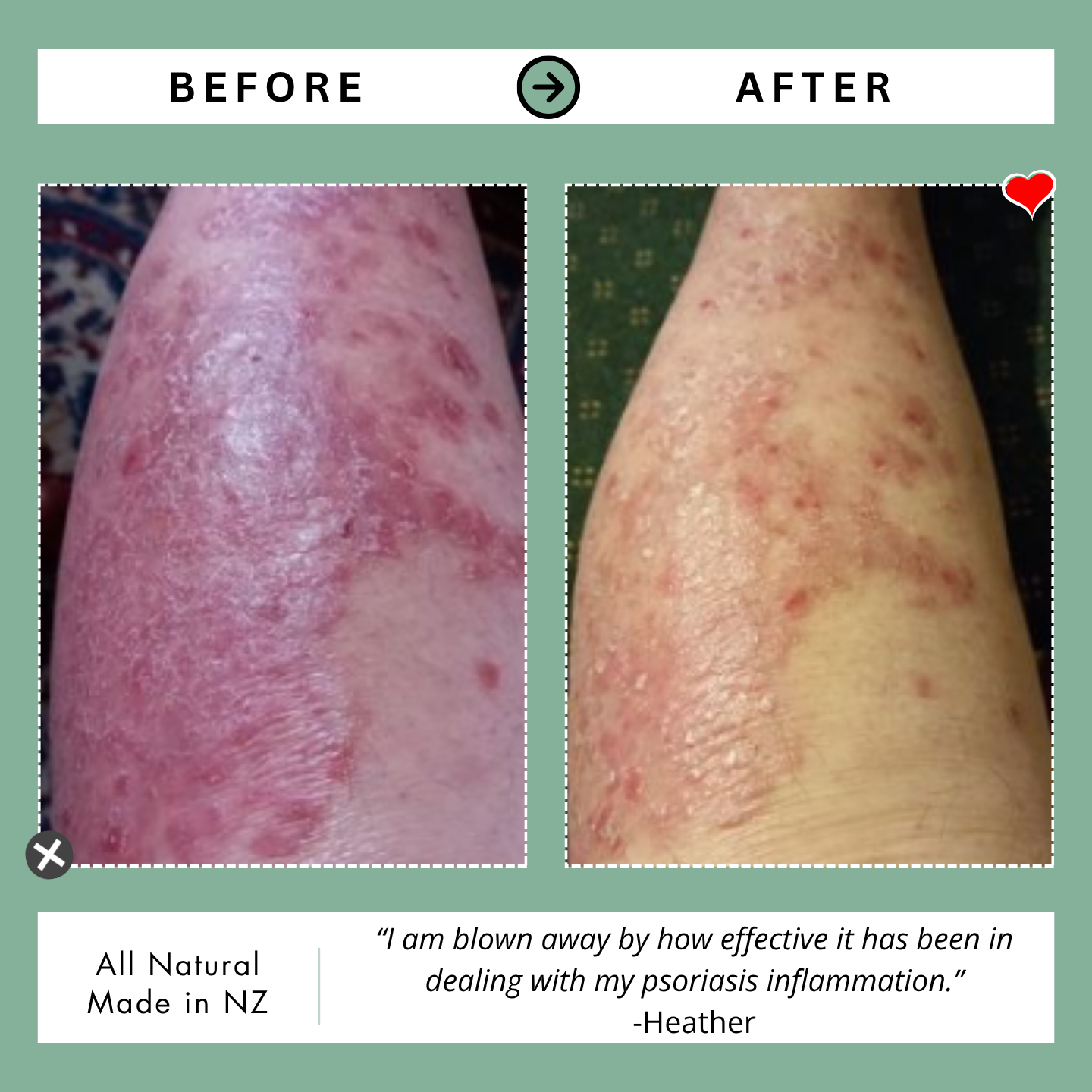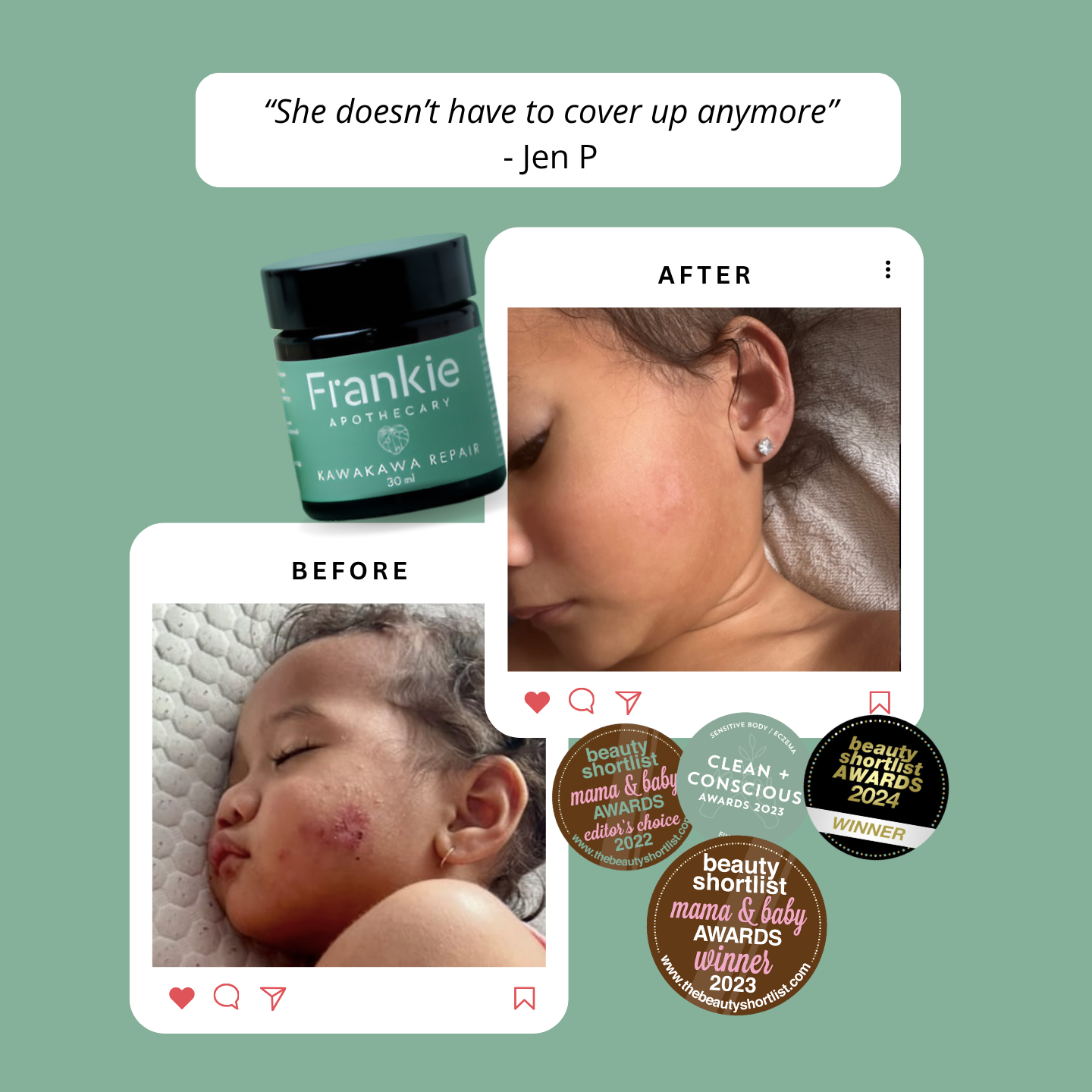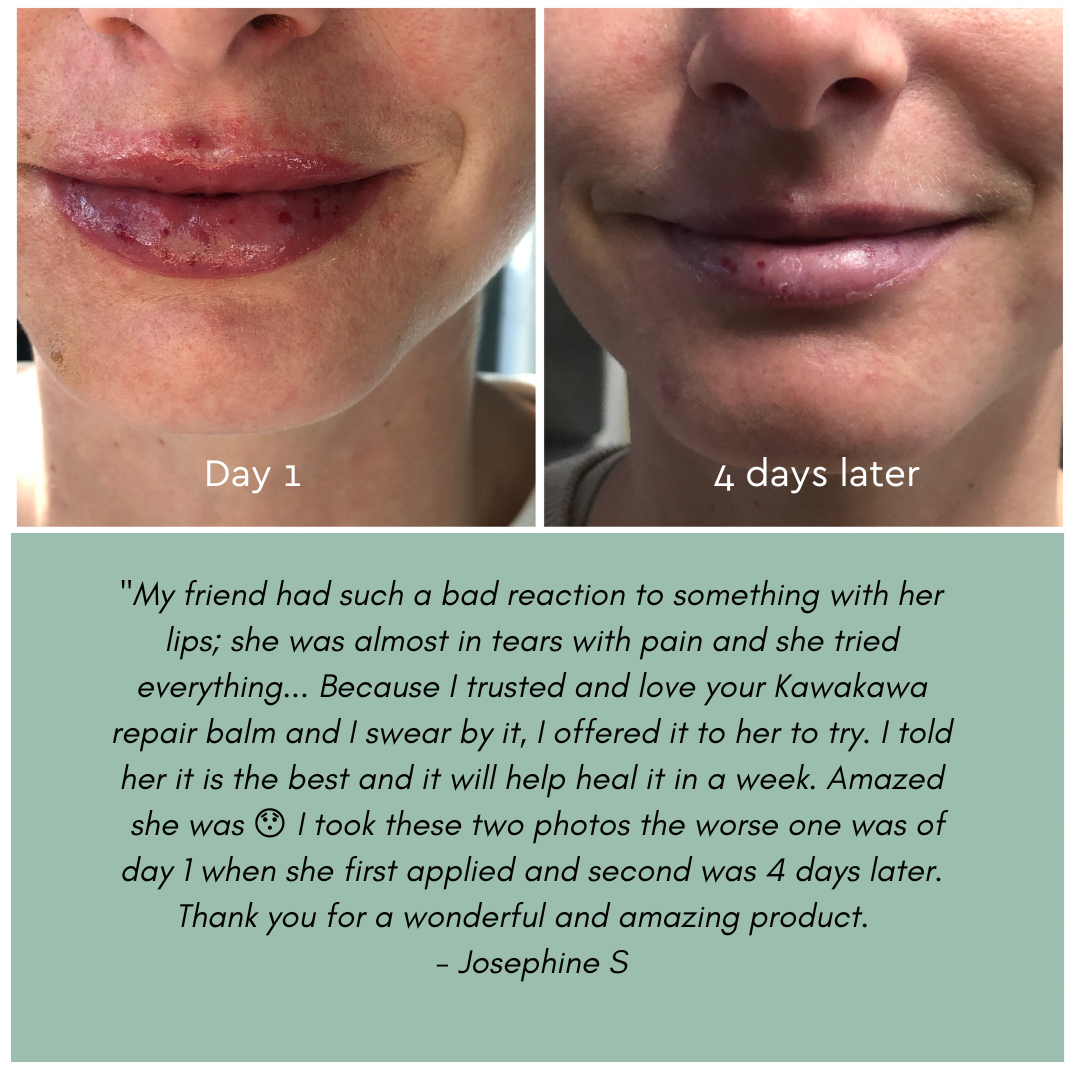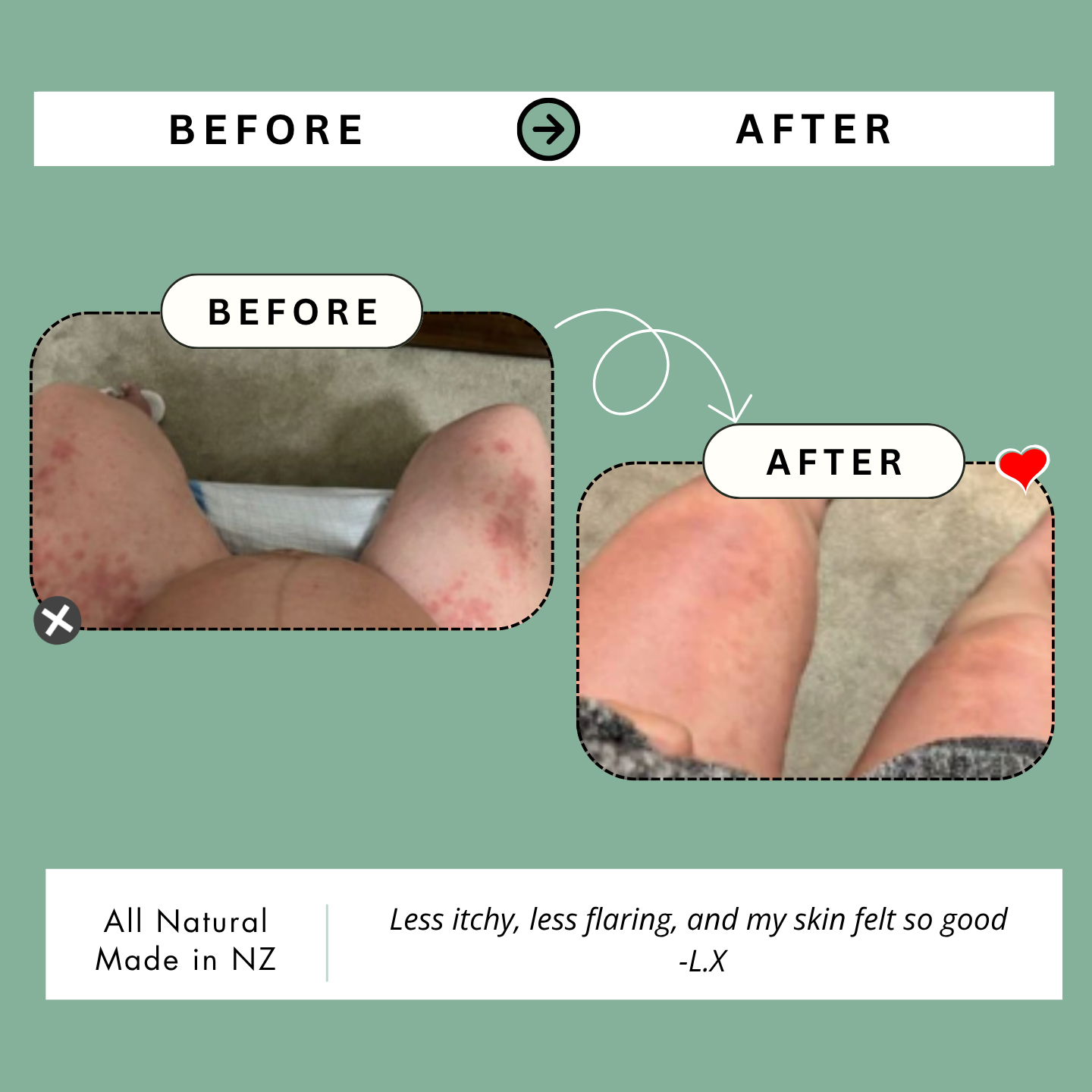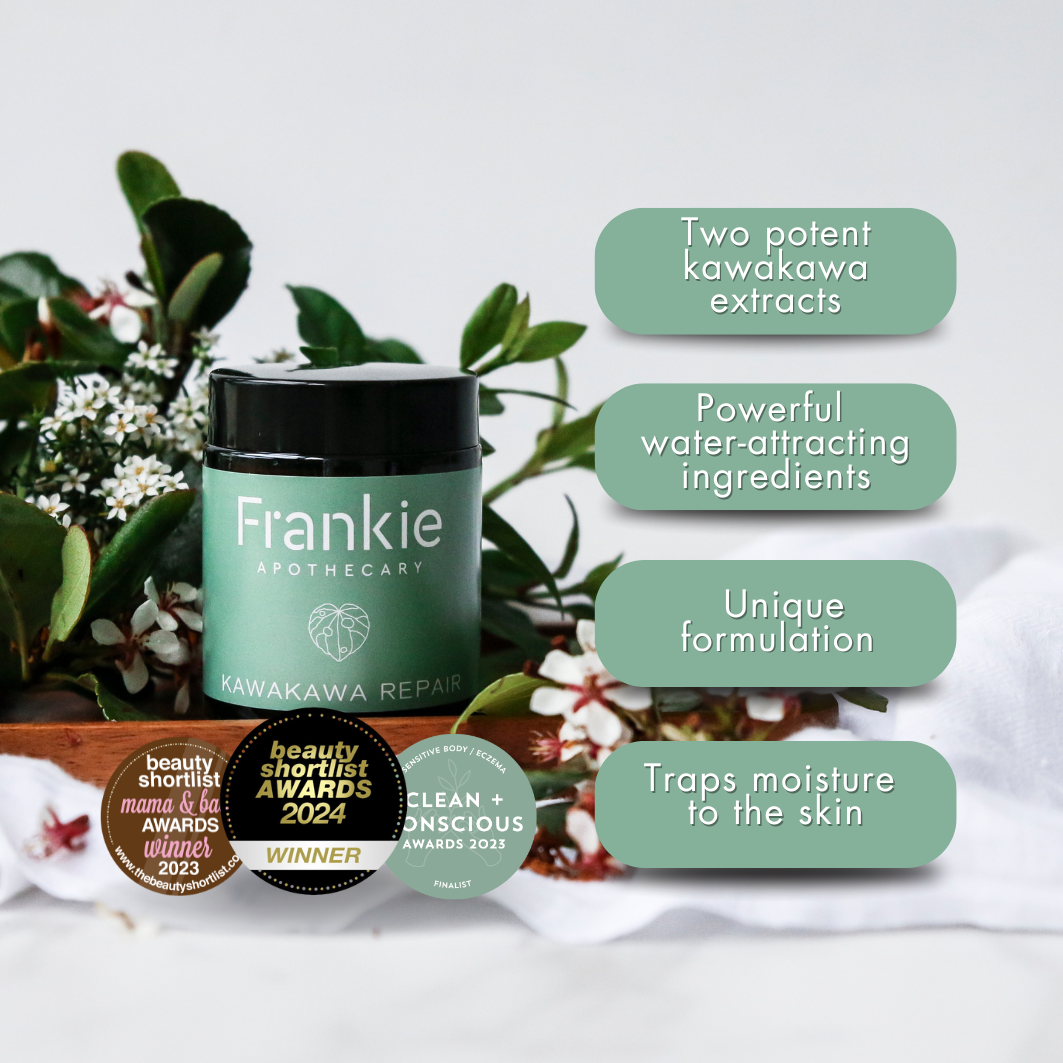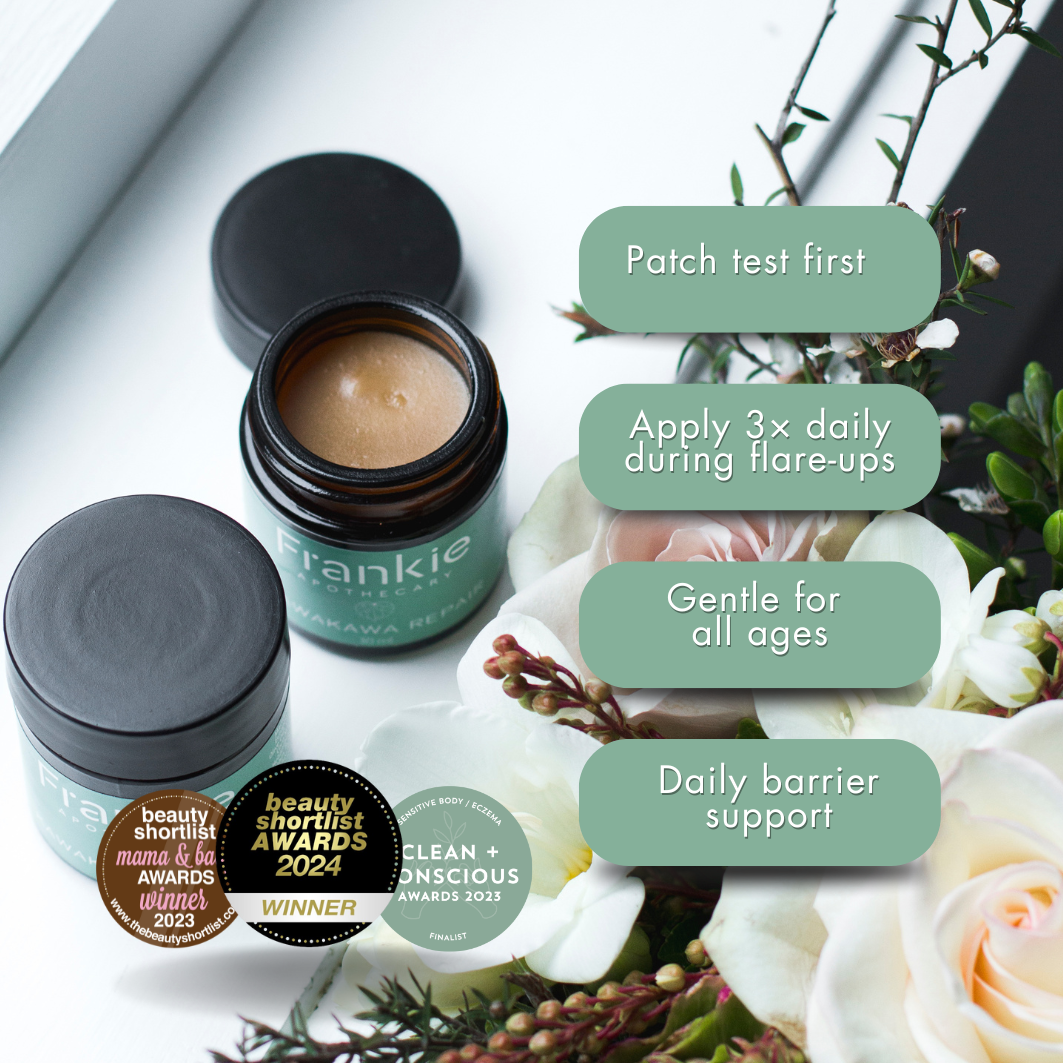One of the things we love most is getting the chance to talk to our amazing customers at shows and expos. We love to hear how they've navigated their own or their child's skin concerns. One topic that's popped up a bit lately is the role salicylates can play in triggering eczema.
Wait: Sally-who-now?
Salicylates are a type of chemical found in some vegetables, nuts and fruits, and appear in teas, wine, spices, skin creams and perfumes, and in medicines - including aspirin, and even some of the medicines used to help control eczema symptoms, especially seborrheic dermatitis.
There are both natural and artificial salicylates, and anyone who has a salicylate sensitivity can react to salicylates found in foods, creams, perfumes (they are easily absorbed through the skin), or medicines.
Many plants use salicylates as an insecticide and it also has food preserving properties. Given that many people with eczema notice reactions to pesticides and preservatives in general, it's no great surprise that salicylates also fit the bill as an eczema trigger.
Salicylates can trigger or exacerbate eczema flare ups
In fact, salicylate sensitivity is suggested to be a common chemical sensitivity found for eczema sufferers.
Scientists have known for over 100 years that aspirin use could trigger skin rashes, and research in the 70's also showed that diets designed to eliminate salicylates and other additives were successful in reducing skin rashes.
A Sydney based research project by Loblay and Swain from the RPA Hospital Allergy Unit demonstrated that eczema symptoms worsened when participants ate foods rich in salicylate. They reported that salicylates worsened or triggered eczema in 52% of people with eczema.
When they put participants on a diet low in salicylate, a whopping 75% had 'cleared skin or considerably improved symptoms' after just two months.
Should eczema patients use eczema creams containing salicylic acid?
• Atopic dermatitis means you have a compromised skin barrier and an increased immune response, leading to irritated, inflamed skin. Salicylic acid's exfoliating properties can damage the skin barrier more, increasing your reaction and the severity of your eczema rash. Dermatologists and health care professionals normally recommend non-salicylic acid-based eczema creams to help support a healthy skin barrier and reduce skin irritation.
• Contact dermatitis is an itchy rash that appears in response to something touching your skin - for example from contact with irritants or allergens in clothing, perfume, jewelry, detergent or cleaning chemicals. Salicylic acid itself can be an irritant or allergen, so using eczema creams containing salicylic acid could actually trigger your contact dermatitis.
Ironically the treatment for skin reactions triggered by salicylate (salicylate dermatitis) is pretty much the same as the generic treatment for eczema, with doctors recommending topical corticosteroids and emollients.
How to find out if you have salicylate sensitivity
The most accurate way to identify salicylate sensitivity is to avoid all foods high salicylate foods for four weeks - then experimenting with reintroducing them one by one.
Be especially careful with fruits and vegetables - foods high in salicylates like nightshades (potato, tomato, eggplant, peppers), coconut or avocado are more likely to trigger a reaction. Because salicylates levels are highest just under the skin in unripe fruit and in the outer leaves of vegetables, peeling fruit and avoiding the outer leaves may help. You can avoid nightshades, coconut, avocado, and minty flavours as mint, menthol and oil of wintergreen contain high levels of salicylates.
You will also need to avoid medications (especially minty toothpaste, mouthwash and throat lozenges), supplements, toiletries and cosmetics which contain salicylates.
Hot tip: Check labels for these ingredients: Aspirin, Ibuprofen, pain relieving drugs, Acetylsalicylic Acid, cold and flu medication, Magnesium salicylate, Menthol, Mint/spearmint/peppermint, Salicylate, Salicylic acid, Phenylethyl salicylate.
You can also check with your GP or pharmacist if any medication you take contains salicylates. Aloe Vera is often mentioned as containing salicylate but the level is currently unknown.
Allergy NZ lists the symptoms of salicylate sensitivity as: itchy skin, hives, rash, stomach pain, asthma, chronic cough, headache, swelling, fatigue, stuffy or running nose, behavioural changes, tinnitus, and maybe even anaphylaxis - so look out for these as well.
Here is a useful guide which you can follow if you think you have salicylate sensitivity.



